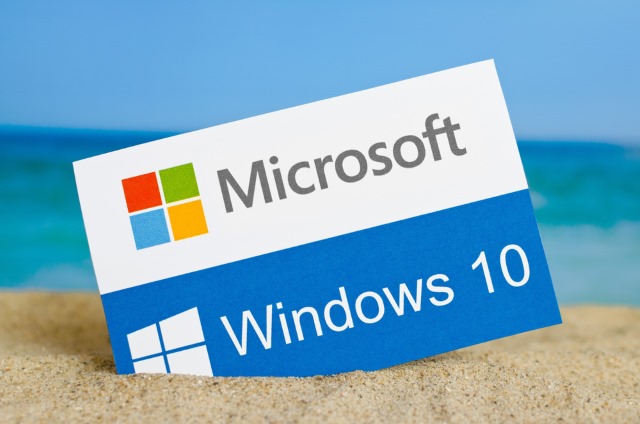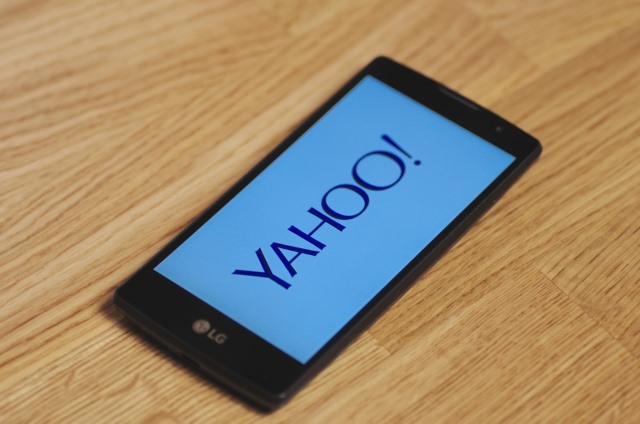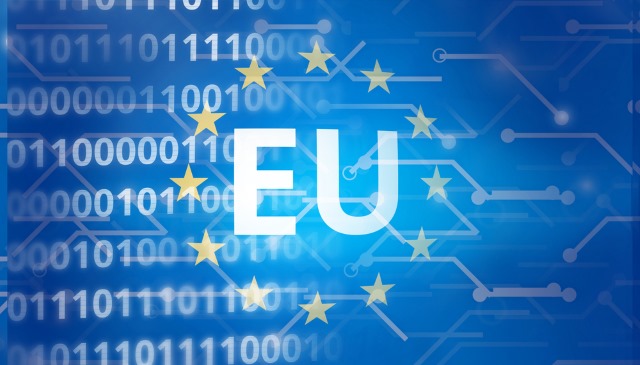
Anonymous search engine DuckDuckGo celebrates over 10 billion searches
A lot of people are more privacy aware than they have been in the past, and are wary of entrusting everything they search for to Google.
That’s where privacy-focused sites like DuckDuckGo come in. Its growth since it launched 8 years ago has been nothing short of staggering, with the number of searches skyrocketing since 2013, when Edward Snowden first revealed how the US government was spying on its people.

Meitu pleads complete innocence against spyware claims
You may have seen our story earlier today about the worrying permissions used by photo app Meitu -- and you have almost certainly seen the disturbing images created in the app and shared on Facebook. The company behind the app -- also called Meitu -- has jumped to defend itself, insisting there is nothing sinister going on.
The company insists that there is a very good reason for asking for so many permissions on iOS and Android. It insists there is a very good reason for gathering so much information about users. It insists this data is stored securely and is not shared with or sold to third parties. The defense is worth reading, but whether users are happy to accept what the company says about transmitting collected data back to a Chinese server remains to be seen.

Privacy warning: Meitu photo app is spyware sharing your phone's data
There has been a sudden craze for freaky-looking photos created using the Chinese app Meitu. The images the app creates are either cutesy or horrific, depending on your point of view, but it's what's going on in the background that has people concerned.
While Meitu has been popular in China for several years --amassing a huge following -- it has only just caught on over here. What many users are unaware of is that while they are busy applying virtual makeup to their face in the app, data such as a phone's IMEI, Mac address, users' precise location and much more is being gathered and shared. The advice? Ditch the app if you're concerned about your privacy.

We know email can be hacked, but what could be next? (Shhhh it's voice)
If you are like most people, you are beginning to wonder if anyone has even a tenth of a clue about how to protect email. We all watched, for example, as reams of stolen political correspondence from a major email provider were posted each day leading up to the recent election, more than likely influencing the outcome.
And we all watched as another major email provider lost 500 million accounts to hackers who seemed to barely break a sweat in doing so. And, as if that’s not bad enough, the criminal underground put these swiped email goods up for sale at about a millionth of a cent per user account. Sadly, that’s just how trivial the bad guys think it has now become to break into our email. Criminal theft of email has officially become commoditized. The old Pony Express was safer.

EFF sets out privacy and security plans for the first 100 days under President Trump
The Electronic Frontier Foundation has set out its plans for the first 100 days under Trump, during which time it says it will continue to fight for the rights of internet and technology users.
The digital rights group has already drawn up a wishlist for covering its privacy and security dreams for 2017, but the 100-day plan sees the EFF setting out its agenda for the first few months under Trump. Having claimed that "our civil liberties need an independent defense force" and that "free speech and the rights to privacy, transparency, and innovation won’t survive on their own", EFF is prepared to go to court -- again -- to hold the new administration to account when necessary.

Chinese citizens can be tracked in real time
A group of researchers have revealed that the Chinese government is collecting data on its citizens to an extent where their movements can even be tracked in real-time using their mobile devices.
This discovery was made by The Citizen Lab at the University of Toronto's Munk School of Global Affairs who specialize in studying the ways in which information technology affects both personal and human rights worldwide.

Genealogy website FamilyTreeNow knows far too much about you -- remove your details to protect your privacy
There was a craze that started a few years back for tracing one's family tree. Rather than fizzling out, the interest in genealogy continued, and there are still many websites out there that will help you to research your family history and build up a picture of the past.
While genealogists of the past may have scoured public records and libraries for information about their family, these days people want things handed to them on a plate. One website is taking full advantage of this -- as well as the fact that the internet can act as a huge database of personal information -- and there's a high chance it has vast amounts of data about you that can be accessed by anyone. The site is FamilyTreeNow.com, and we'll show you what you need to do to protect your privacy and security.

How to protect yourself from the WhatsApp 'backdoor'
Earlier today we reported about a security problem in WhatsApp that means it is possible for messages to be intercepted and read by others. The so-called 'backdoor' takes advantage of the fact that WhatsApp's implementation of end-to-end encryption makes it possible to resend encrypted messages using different security keys, allowing for third parties to read them.
What is concerning many people is the fact that (by default, at least) WhatsApp does not alert users when a message is resent using a different key -- which would be a warning of something going on. Here's what you need to do to ensure you are told when the key changes.
'Backdoor' in WhatsApp's end-to-end encryption leaves messages open to interception [Updated]
Facebook has long-claimed that its WhatsApp messaging service is completely secure and messages cannot be intercepted thanks to its use of end-to-end encryption. But researchers have unearthed what they call a serious security flaw that makes it possible to read encrypted messages.
Based on Open Whisper Systems' Signal Protocol, the unique security keys used to implement end-to-end encryption should keep messages secure. But WhatsApp can force offline users to generate new keys and this could allow Facebook -- and third parties -- to read messages.

Before handing over power to Trump, Obama decides to EXPAND surveillance
With Donald Trump about to take over the reins from Barack Obama, privacy groups have expressed concern about what the incoming president will do with surveillance laws. But before that happens, President Obama is still a cause for concern. In the final days of his leadership, his administration has granted permission for the NSA to share the data it intercepts with no fewer than 16 other intelligence agencies.
While this will alarm many, what is particularly troubling is the fact that privacy protections are not applied until after this data has been shared between agencies. The changes in rules amount to a major relaxation of restrictions on NSA activities, meaning that a far greater number of officials will have access to unfiltered, uncensored data about innocent people around the world.

Microsoft dodges Swiss court with changes to Windows 10 privacy settings
Privacy has been a big issue for users of Windows 10, and the tsunami of complaints about spying has been a major headache for Microsoft. Now the company has managed to avoid a potentially expensive and damaging court case in Switzerland by improving data processing transparency in Windows 10.
The Swiss Federal Data Protection and Information Commissioner (FDPIC) has just reached the end of an investigation into Windows that started back in 2015. They found that Windows 10's "get going fast" quick install option automatically enabled invasive data sharing with Microsoft (location details, browser and search history, keyboard entries and nearby WiFi networks, for example) without providing users with sufficient warning.

Europe: we need more details from Yahoo about scanning emails for US intelligence
The European Union is not happy with the explanation Yahoo has given for scanning user emails for US intelligence. There is concern about how such surveillance could impact upon not only privacy, but also business between the EU and US, and trust has to be built from scratch as Donald Trump becomes president.
Yahoo -- which is on the verge of being sold to Verizon -- is not signed up to the EU-U.S. Privacy Shield agreement that blocks the US from spying on European data. As such, the company has been acting on a previously-secret court order, gathering data for the NSA and FBI. Speaking with Reuters, the EU Justice Commissioner said she wants more information about what was gathered and why.

Microsoft makes big privacy changes to Windows 10 in a bid to win back user trust
Windows 10 has a reputation for spying on its users. So much so, that a number of privacy-based third-party programs (such as Ashampoo AntiSpy and Spybot Anti-Beacon) have sprung up to disable Windows 10’s numerous tracking features.
In September 2015, Microsoft's Terry Myerson defended how the company has handled privacy in Windows 10, saying in a blog post that "Trust is a core pillar of our More Personal Computing vision, and we know we have to earn it". Today, in a new blog post, he says much the same thing, but announces two new ways for users to take back control of their privacy. Does it go far enough?

EU wants to increase privacy in WhatsApp, Gmail and iMessage by preventing unwanted tracking
Facebook, Apple and Google face a drop in ad revenue if EU proposals to apply the same rules to online messaging services that currently apply to telecoms companies go through. In a nutshell, the proposals suggest that the likes of WhatsApp, Gmail and iMessage should ask for explicit user permission to allow tracking with a view to delivering targeted ads.
Google and Microsoft have already faced criticism for scanning emails and using the contents to tailor advertising to the recipient. The EU wants online message services to be subject to the ePrivacy Directive to help improve confidentiality and security.

Warning: Chrome, Opera and Safari's auto form fillers make it easy to steal personal data
We're all looking for ways to save time and effort, so it's hardly surprising that some web browsers offer a feature that automatically fills in online forms with commonly requested personal information. While incredibly useful, the feature can also be exploited to extract data a user might not want to share with a particular website.
Chrome, Opera and Safari all offer to save and automatically fill in details such as name, address, phone number, and so on, and users are ordinarily only aware of the data which is obviously filled in on their behalf. But a web developer shows how it is possible -- and very, very easy -- to use hidden fields to secretly gather all of the information saved in an autofill profile.
